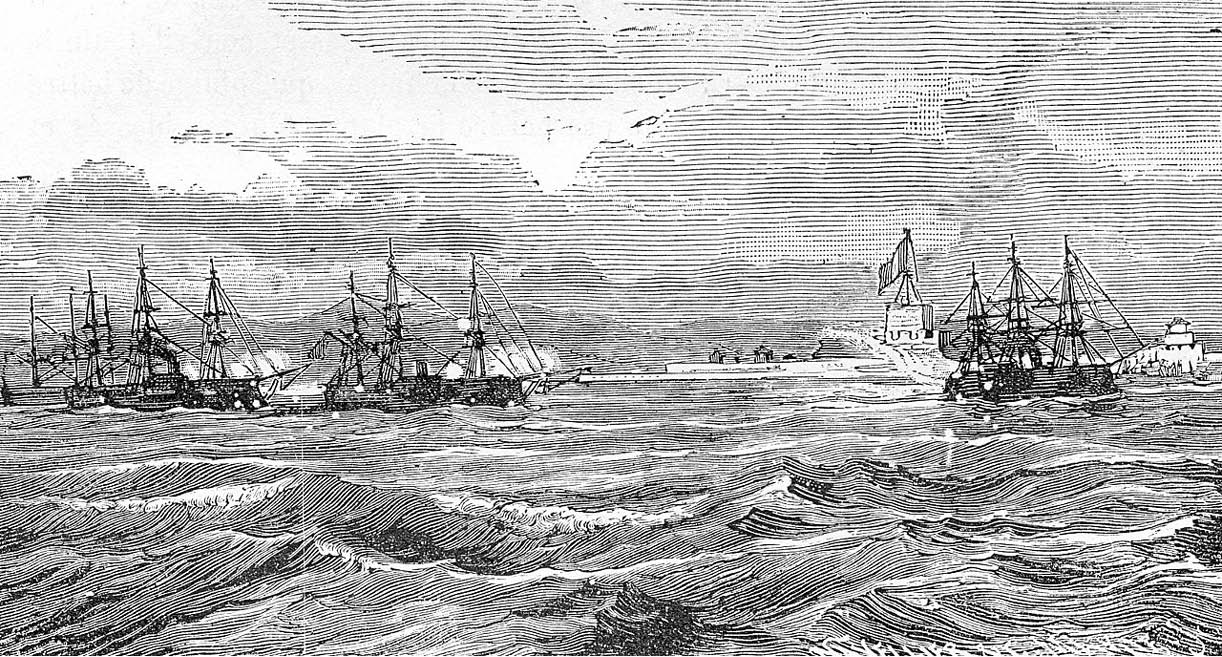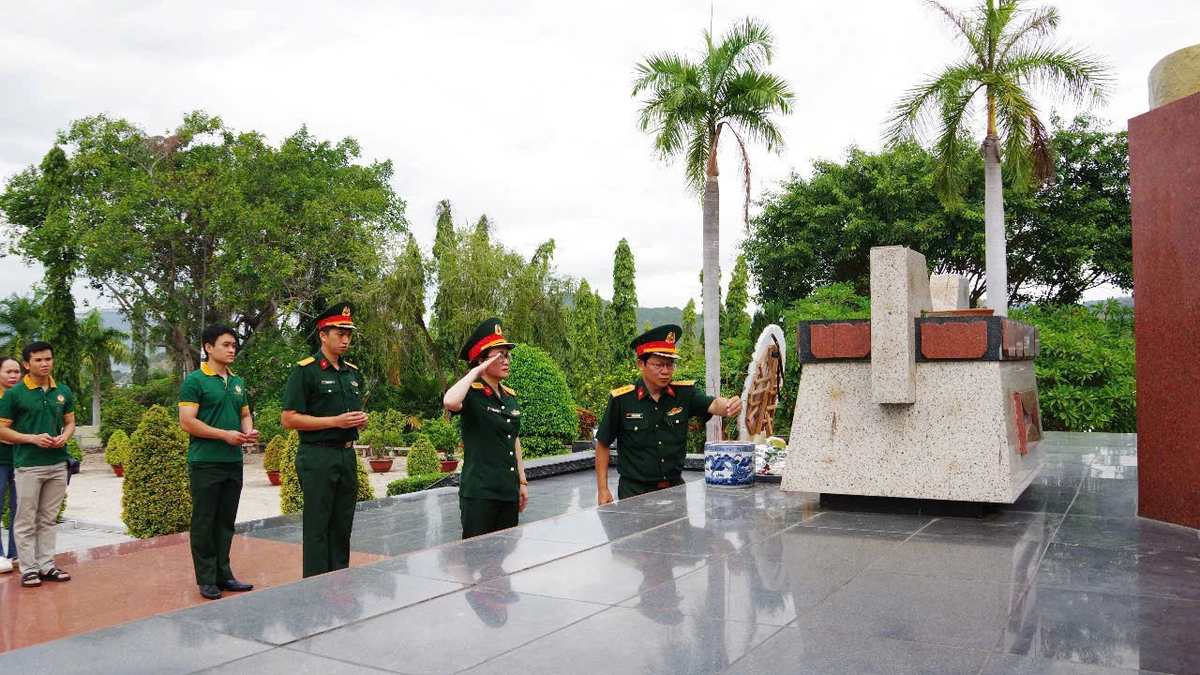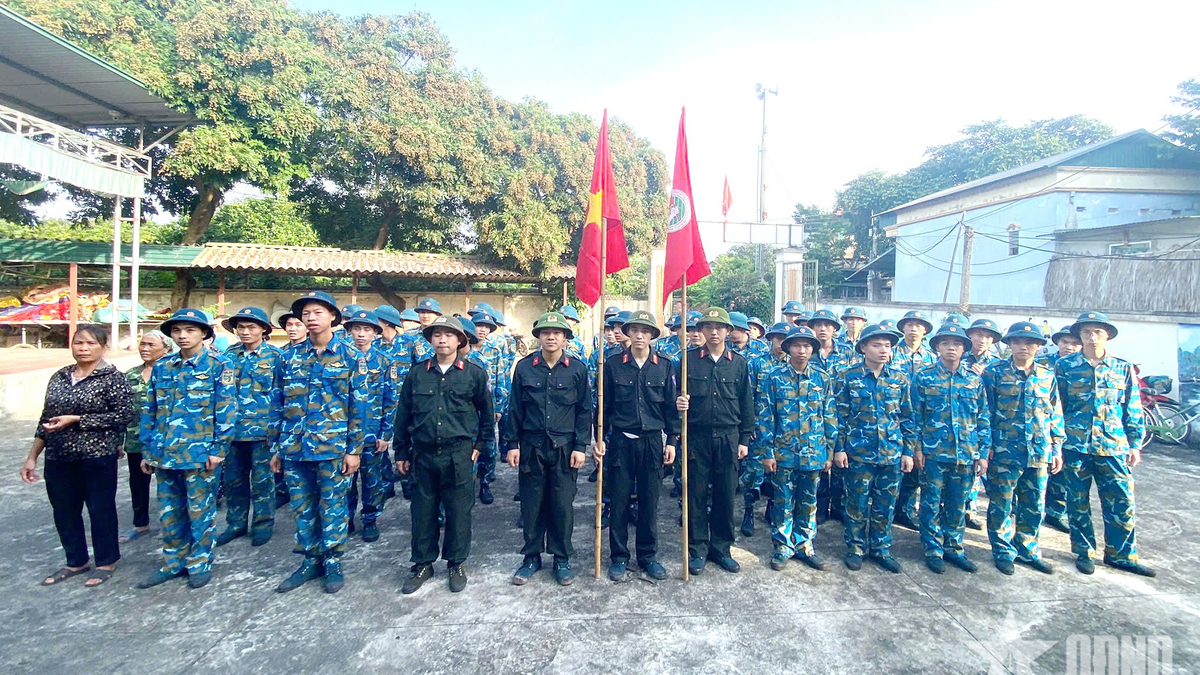French ships at Thuan An port on August 18, 1883, source: Tonkin War by author L. Huard, Paris 1887 |
Since the beginning of the invasion of Vietnam in the mid-19th century, the French colonialists have always encountered fierce resistance from the entire people as well as the Nguyen Dynasty's military forces. With the plot of invasion, the French colonialists gradually occupied many places in our country's territory and finally decided to carry out an important attack on the "brain" center of the country, the Imperial City of Hue, during the period from 1883 to 1885.
In the French colonialists' plan to attack the capital Hue in 1883, Thuan An fortress was identified as a priority military target to capture to open the way to attack the inner city. Right at the time when France was actively preparing its forces for this campaign, on July 19, 1883, King Tu Duc passed away. This left a large power vacuum in the royal court, revealing internal divisions and fierce disputes.
According to history books, on August 18, 1883, France sent many warships and hundreds of soldiers to anchor off the coast of Thuan An; then sent a message forcing the Hue court to disarm all forts. At that time, the newly crowned king Hiep Hoa sent people to negotiate to delay the troops but failed. Not long after, the French opened fire to attack, our army fought back fiercely but mostly missed the target, Tran Hai fort fell, most of the defenders were sacrificed.
At the scientific conference with the theme "Historical figures in the defense of national sovereignty at Thuan An estuary and Hue Capital (1883 - 1885)" organized by the Hue City Historical Science Association at the end of last month, many opinions of experts and historical researchers evaluated the bravery and sacrifice to protect the country of the officers and soldiers during this period.
According to researcher Le Minh Khiem (Hue City), in the Thuan An battle, the Nguyen Dynasty's army and people fought fiercely to protect every inch of land at the gateway to the Hue Citadel. But with powerful, modern equipment, the French colonialists eventually gained the advantage.
“Thuan An fell, Tran Hai and Hoa Duong forts fell into the enemy’s hands, opening a dark and painful period in the country’s history, leading to a series of subsequent events such as the fall of the capital and the Can Vuong movement. The soldiers and civilians who sacrificed to protect Thuan An are always remembered by later generations. The heroic actions of generals such as Le Si, Lam Hoanh, Tran Thuc Nhan… were continued by Ton That Thuyet, Tran Xuan Soan, and Ho Van Hien in the battle of Hue Citadel in 1885 to protect the country’s independence and autonomy,” Mr. Khiem commented.
Speaking about this event, Mr. Khiem said that later on, the folk poem “The Fall of Thuan An” was circulated anonymously, but it was probably witnessed directly by contemporaries, providing very realistic and vivid images of a heroic tragedy. Recently, collectors have recorded it in writing for circulation, the form of the six-eight verse has differences in each word or each verse.
Meanwhile, according to Associate Professor Dr. Nguyen Tat Thang (Faculty of History, University of Education, Hue University), the soldiers in the battle in Thuan An fell in the last moments of national independence, in the posture of heroes fighting against the French. Although they could not resist the enemy's attack, they became human beings, because they sacrificed themselves for a great cause, for justice.
It was the bravery of the Vietnamese that made the French army admire. This was evidenced by Mr. Thang from the memoirs of the French warship commander named Destelan who praised the great fighting spirit and great sacrifice of our army as follows: “The gunners died on their cannons, they were brave men. They lay down and the sand buried them in the ground behind the cannons made them great…”.
“Because of their bravery for justice and for the country, after their sacrifice, in January 1884, the Hue court under the reign of King Kien Phuc immediately thought of their contributions, providing pensions and warm hospitality to the families of those whose relatives died in the Thuan An battle,” Associate Professor, Dr. Nguyen Tat Thang said.
NHAT MINH
Source: https://huengaynay.vn/chinh-tri-xa-hoi/tinh-than-yeu-nuoc-tu-cuoc-chien-bao-ve-cua-bien-thuan-an-cuoi-the-ky-xix-155769.html





































































































Comment (0)